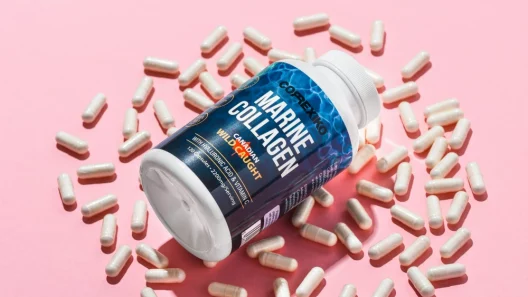Dietary supplements have transformed from niche health products to mainstream wellness tools, with global market projections exceeding $300 billion by 2025 . This remarkable growth reflects a fundamental shift in how people approach health—from reactive treatment to proactive optimization. Modern consumers are increasingly taking their health into their own hands, seeking natural approaches to complement conventional medicine and address the limitations of our modern food system . At MyGreenRemedy, we believe in empowering informed decisions through evidence-based education. This comprehensive guide serves as your central resource for understanding dietary supplements—what they are, how they work, and how to use them safely and effectively. From this hub, you’ll find links to detailed articles exploring specific supplement categories, ensuring you have both the big picture and the specific knowledge needed to navigate your wellness journey with confidence.
What Are Dietary Supplements?
Defining Dietary Supplements
According to the U.S. Food and Drug Administration (FDA), dietary supplements are products intended to supplement the diet that contain one or more dietary ingredients, including vitamins, minerals, herbs or other botanicals, amino acids, and substances such as enzymes, organ tissues, glandulars, and metabolites . These products come in various forms—tablets, capsules, softgels, powders, drinks, and energy bars—and are labeled as dietary supplements on the front panel .
The defining characteristic of supplements is their complementary role: they’re designed to augment, not replace, nutrients obtained from food. Unlike pharmaceuticals, which must undergo rigorous pre-market testing for safety and efficacy, supplements are regulated as a special category of food, placing more responsibility on manufacturers for ensuring safety and on consumers for making informed choices .
How Supplements Differ from Food and Medicine
Understanding where supplements fit in the spectrum of health products is crucial:
- Vs. Food: Supplements provide concentrated forms of nutrients or other bioactive compounds but lack the complex matrix of food, which contains fiber, antioxidants, and other compounds that work synergistically . Supplements complement but cannot replicate a healthy diet.
- Vs. Pharmaceuticals: Drugs are designed to treat, prevent, or cure diseases and undergo extensive testing before approval. Supplements cannot claim to diagnose, treat, cure, or prevent diseases and have less stringent pre-market requirements .
Global Regulatory Landscape
Supplement regulation varies significantly worldwide, creating a complex landscape for consumers:
- United States: Regulated under the Dietary Supplement Health and Education Act (DSHEA) of 1994, which classifies supplements as food rather than drugs . Manufacturers are responsible for ensuring safety and proper labeling, but products don’t require FDA approval before marketing .
- European Union: Has more stringent regulations, with supplements classified as “food supplements” under Directive 2002/46/EC . The European Food Safety Authority (EFSA) evaluates health claims, and permitted ingredients are listed in positive lists .
- Australia: Regulates supplements as “complementary medicines” under the Therapeutic Goods Administration (TGA), requiring listing or registration depending on ingredients and claims .
- Global Quality Variations: Regulation differences mean product quality, potency, and purity can vary significantly between regions, underscoring the importance of choosing reputable brands .
Why People Take Supplements
Addressing Nutritional Gaps
Modern lifestyles and food systems have created challenges for obtaining optimal nutrition:
- Soil depletion: Industrial farming has reduced nutrient density in many crops, with studies showing declines of 5-40% in mineral content of fruits and vegetables over the past 70 years .
- Dietary restrictions: Vegan, vegetarian, and other specialized diets may create specific nutrient gaps that require supplementation .
- Life stage needs: Pregnancy, aging, and other life stages increase nutritional requirements that may be difficult to meet through diet alone .
- Digestive issues: Conditions affecting absorption (celiac disease, IBD, etc.) may necessitate supplemental forms of nutrients .
Supporting Specific Health Goals
Beyond basic nutrition, people turn to supplements for targeted support:
- Immune function: Particularly relevant in the wake of global health concerns, with 43% of supplement users citing immune support as a primary reason for use .
- Cognitive performance: The growing “nootropics” market addresses concerns about brain fog, memory, and focus in our increasingly knowledge-based economy .
- Stress adaptation: Modern life’s chronic stress has driven interest in adaptogens and other stress-support supplements .
- Performance enhancement: Athletes and active individuals use supplements to support recovery, endurance, and muscle function .
- Longevity and wellness: The growing biohacking movement uses supplements as tools for optimizing healthspan and performance .
The Food-First Foundation
While supplements offer valuable support, they work best within a foundation of healthy lifestyle choices:
- Whole foods first: Supplements should complement, not replace, a nutrient-dense diet rich in fruits, vegetables, whole grains, lean proteins, and healthy fats .
- Lifestyle synergy: Supplements work most effectively alongside adequate sleep, regular physical activity, stress management, and social connection .
- Individualized approach: Needs vary based on genetics, health status, lifestyle, and goals—there’s no one-size-fits-all supplement regimen .
Categories of Dietary Supplements
Vitamins & Minerals
Vitamins and minerals are essential micronutrients required for hundreds of biochemical processes in the body. They’re divided into two categories:
- Water-soluble vitamins: Vitamin C and B-complex vitamins that must be replenished regularly as they’re not stored in significant amounts .
- Fat-soluble vitamins: Vitamins A, D, E, and K that are stored in the liver and fatty tissues .
- Macrominerals: Needed in larger amounts (calcium, magnesium, potassium, sodium, chloride, phosphorus, sulfur) .
- Trace minerals: Needed in smaller amounts (iron, manganese, copper, iodine, zinc, cobalt, fluoride, selenium) .
While ideally obtained from food, supplements can help address specific deficiencies or increased needs. For example, vitamin D deficiency affects approximately 50% of the global population, making supplementation necessary for many .
Herbal & Plant-Based Supplements
Herbal supplements contain plants or plant parts used for their medicinal properties. These traditional remedies are experiencing renewed scientific interest:
- Turmeric/Curcumin: The active compound in turmeric, with potent anti-inflammatory properties supported by numerous studies .
- Ginger: Used for digestion, nausea, and inflammation, with research supporting its effectiveness for various conditions .
- Ginkgo Biloba: One of the most researched herbs for cognitive support, particularly for age-related cognitive decline .
- Adaptogens: Herbs like ashwagandha, rhodiola, and holy basil that help the body adapt to stress .
Herbal supplements offer a bridge between traditional wisdom and modern science, though quality and standardization vary significantly between products.
Probiotics & Gut Health
The gut microbiome—the community of microorganisms living in our digestive tract—has emerged as a crucial factor in overall health. Probiotics are live microorganisms that, when administered in adequate amounts, confer a health benefit :
- Digestive support: Specific strains can help with IBS, diarrhea, constipation, and other digestive issues .
- Immune function: Approximately 70% of immune cells reside in the gut, making microbiome health crucial for immunity .
- Mental health: The gut-brain axis allows communication between the gut and brain, influencing mood and cognition .
- Metabolic health: Gut bacteria influence nutrient extraction, energy metabolism, and even weight management .
For a comprehensive exploration of this category, see our detailed guide to Probiotics for Gut Health: Evidence and How to Choose.
Cognitive & Brain Support
Nootropics—substances that may improve cognitive function—have grown from biohacking circles to mainstream interest. Key categories include:
- Omega-3 fatty acids: DHA is a major structural component of the brain, crucial for cognitive function throughout life .
- Bacopa monnieri: An Ayurvedic herb with research supporting its benefits for memory and learning .
- Lion’s mane mushroom: Shown to stimulate nerve growth factor and support brain health .
- Caffeine + L-theanine: A combination that provides alertness without jitters, supported by numerous studies .
Cognitive supplements work best when combined with mental stimulation, quality sleep, and other brain-healthy habits.
Explore this category in depth in our article on Best Natural Supplements for Cognitive & Brain Health.
Immune-Boosting Supplements
Immune support remains a primary reason people take supplements, particularly in light of recent global health events. Well-researched options include:
- Vitamin D: Plays a crucial role in immune regulation, with deficiency linked to increased infection risk .
- Vitamin C: Supports various immune cell functions and provides antioxidant protection .
- Zinc: Essential for immune cell development and communication, and directly inhibits some viruses .
- Elderberry: Contains compounds that may inhibit viral entry and replication .
- Medicinal mushrooms: Reishi, turkey tail, and others contain beta-glucans that modulate immune responses .
Immune supplements work synergistically with lifestyle factors like sleep, stress management, and nutrition.
For a detailed analysis of immune supplements, see our guide to Top Supplements for Immune Support in 2025.
Weight Management & Metabolism
The weight management supplement landscape has evolved significantly, with growing interest in natural approaches alongside pharmaceutical options:
- Fiber supplements: Glucomannan and other fibers promote satiety and support healthy metabolism .
- Green tea extract: Contains EGCG and caffeine that may modestly increase metabolic rate .
- Protein supplements: Support satiety and preserve lean mass during weight loss .
- Natural vs. pharmaceutical approaches: Growing interest in how natural supplements compare to prescription options like GLP-1 medications .
This complex category requires careful consideration of evidence, safety, and individual needs.
For a balanced perspective on this evolving field, read our comparison of Natural Supplements vs. GLP-1 Medications: What You Should Know.
Healthy Skin, Hair, and Nails
Supplements targeting cosmetic wellness have grown beyond mere beauty concerns, reflecting an understanding that the health of our skin, hair, and nails is an outward indicator of internal nutritional status and overall well-being. These supplements provide the essential building blocks needed for the constant regeneration of these tissues.
- Collagen peptides: The most abundant protein in the body, collagen provides structure to skin, hair, and nails. Supplementing with hydrolyzed collagen peptides has been shown to improve skin elasticity and hydration, reduce wrinkles, and support nail strength and growth. Read more on Collagen Supplements: Benefits, Types, and How to Choose in our detailed article.
- Biotin (Vitamin B7): Essential for the synthesis of proteins like keratin, the primary structural component of hair and nails. While deficiency causes clear issues, supplementation is most effective for those with a deficiency, though it’s widely popular for promoting thicker hair and stronger nails.
- Vitamin C: A critical cofactor for collagen production. As a powerful antioxidant, it also helps protect the skin from free radical damage caused by UV exposure and pollution, supporting skin resilience and a youthful appearance.
- Hyaluronic Acid: A molecule that can hold up to 1,000 times its weight in water, it is a key component of skin tissue. Oral supplementation helps improve skin moisture content and reduce the appearance of fine lines.
- Zinc and Selenium: These trace minerals are vital for tissue growth and repair. Zinc supports protein synthesis and wound healing, while selenium’s antioxidant properties help protect the skin from oxidative stress.
- Omega-3 Fatty Acids: Found in fish and algal oils, these healthy fats help maintain skin cell membrane health, support the skin’s natural oil barrier for hydration, and can have anti-inflammatory effects that may help with conditions like dryness or eczema.
Results from these supplements are typically not immediate, as they support the body’s natural renewal processes. Consistent use for several weeks to months is often necessary to see visible improvements. For a deeper dive into the science behind these supplements, see our article on Best Supplements for Glowing Skin, Strong Hair, and Healthy Nails.
Table: Major Supplement Categories and Primary Uses
| Category | Primary Functions | Examples | Evidence Strength |
| Vitamins & Minerals | Fill nutrient gaps, support metabolic processes | Vitamin D, Magnesium, Iron | Strong for deficiency correction |
| Herbal Supplements | Provide plant-based bioactive compounds | Turmeric, Ginger, Ginkgo | Variable (strain-specific) |
| Probiotics | Support gut microbiome balance | Lactobacillus, Bifidobacterium | Strong for specific conditions |
| Cognitive Support | Enhance brain function, memory, focus | Omega-3s, Bacopa, Lion’s Mane | Moderate to Strong |
| Immune Support | Modulate immune function, reduce infection risk | Vitamin C, Zinc, Elderberry | Moderate to Strong |
| Weight Management | Support metabolism, satiety, fat oxidation | Fiber, Green tea, Protein | Variable |
| Skin, Hair & Nails | Support structural protein production, hydration, and antioxidant defense | Collagen, Biotin, Hyaluronic Acid | Moderate to Strong for specific ingredients |
How to Choose Safe and Effective Supplements
Third-Party Testing and Quality Assurance
Third-party verification is one of the most reliable indicators of supplement quality. Independent organizations test products to verify they contain what’s claimed on the label without harmful contaminants. Look for certifications from:
- NSF International: Tests for product formulation, ingredient amounts, and contaminants .
- USP (United States Pharmacopeia): Verifies identity, potency, purity, and performance .
- ConsumerLab.com: Independently tests supplements and publishes results .
- Informed-Choice/Informed-Sport: Particularly important for athletes, these certifications test for substances banned in sports .
Products with these certifications typically cost more but offer greater assurance of quality and safety.
Understanding Labels and Bioavailability
Supplement labels contain crucial information for making informed choices:
- Supplement Facts panel: Lists active ingredients and amounts per serving .
- Other ingredients: Includes fillers, binders, and flow agents—minimal unnecessary additives are ideal .
- Bioavailability considerations: Some nutrient forms are better absorbed than others. For example:
- Magnesium: Citrate and glycinate forms are better absorbed than oxide .
- Curcumin: Often combined with piperine or formulated as phospholipid complexes for enhanced absorption .
- Vitamin D: D3 (cholecalciferol) is more effective than D2 at raising blood levels .
Company Reputation and Transparency
The manufacturer’s reputation is as important as the product itself. Reputable companies typically:
- Have scientific advisory boards with qualified experts
- Provide transparent information about sourcing and manufacturing
- Are willing to answer questions about their products
- Have consistent quality across batches and products
- Use ethical sourcing practices and sustainable ingredients
For a comprehensive guide to evaluating supplement quality, see our article on Choosing Safe and Effective Supplements: What to Look For.
Safety, Risks & Best Practices
When to Consult a Healthcare Provider
Certain individuals should always consult a healthcare provider before starting new supplements:
- People with chronic health conditions (especially liver or kidney disease)
- Those taking prescription medications (due to potential interactions)
- Pregnant or breastfeeding women
- Children (dosing needs adjustment based on weight/age)
- People scheduled for surgery (some supplements can affect bleeding risk or anesthesia)
- Those with compromised immune systems
A healthcare provider can help identify potential risks and appropriate dosing.
Understanding Drug-Supplement Interactions
Supplements can interact with medications in several ways:
- Blood thinners: Vitamin K, garlic, ginkgo, and others can affect clotting
- Diabetes medications: Some supplements may affect blood sugar levels
- Blood pressure medications: Supplements like magnesium or coQ10 might enhance effects
- Immunosuppressants: Echinacea and other immune-stimulating herbs may interfere
- Thyroid medications: Iodine, selenium, and certain herbs can affect thyroid function
Always discuss supplements with your pharmacist or doctor if you take medications.
Risks of Over-Supplementation
More is not always better when it comes to supplements:
- Fat-soluble vitamins (A, D, E, K) can accumulate to toxic levels
- Certain minerals (iron, selenium, zinc) can be harmful in excess
- Mega-doses of some nutrients can cause imbalances with other nutrients
- Herbal supplements can have drug-like effects and cause side effects at high doses
Stick to recommended doses unless specifically advised otherwise by a healthcare provider.
The Future of Supplements in 2025 and Beyond
Personalized Nutrition
DNA-based supplementation represents one of the most significant trends in the supplement industry:
- Genetic testing: Companies now offer supplements tailored to individual genetic profiles that affect nutrient metabolism (such as MTHFR variants that impact folate processing) .
- Microbiome testing: Personalized probiotic recommendations based on individual gut microbiome analysis .
- Wearable integration: Supplements recommended based on real-time health data from wearables tracking sleep, activity, and other metrics .
Sustainability and Eco-Conscious Trends
Environmental considerations are increasingly influencing supplement choices:
- Plant-based formulations: Growing demand for vegan supplements without animal-derived ingredients (gelatin capsules, etc.) .
- Sustainable sourcing: Consumers seeking products with transparent, ethical supply chains and minimal environmental impact .
- Regenerative agriculture: Supplements sourced from ingredients grown using soil-health-focused farming practices .
- Ocean-friendly omega-3s: Algal oil supplements providing DHA and EPA without depleting fish stocks .
The Gut-Brain-Immune Connection
Integrated approaches to wellness are becoming more prominent:
- Psychobiotics: Specific probiotic strains targeted toward mental health support through the gut-brain axis .
- Immunobiotics: Probiotics selected for their immune-modulating properties .
- Systems biology approaches: Supplements designed to support multiple connected systems rather than isolated symptoms .
FAQs
Do supplements actually work?
The answer depends on the specific supplement, quality, dosage, and individual circumstances. Evidence-based supplements with strong research support (like vitamin D for deficiency, specific probiotics for IBS, or omega-3s for cardiovascular support) can be highly effective when used appropriately . However, many supplements have limited evidence, and individual responses vary based on genetics, health status, and lifestyle factors . The key is focusing on supplements with strong scientific support for your specific needs.
Are natural supplements safer than synthetic ones?
Not necessarily. “Natural” is an unregulated term that doesn’t guarantee safety or efficacy. Many natural substances can be potent and cause side effects or interactions . Conversely, synthetic vitamins are often identical to their natural counterparts and may offer better purity and consistency . The most important considerations are quality, appropriate dosing, and evidence of safety and efficacy—not whether a supplement is labeled “natural.”
How long before results are noticeable?
This varies significantly depending on the supplement and your individual needs. Some supplements (like magnesium for muscle cramps or caffeine for energy) may show effects within hours, while others (like omega-3s for inflammation or probiotics for gut health) may take weeks to months . Herbal supplements and those addressing chronic issues typically require consistent use for several weeks before benefits become noticeable. Managing expectations is important—most supplements work gradually rather than providing immediate, dramatic results.
Can supplements replace a healthy diet?
No, supplements cannot replace a healthy diet. Whole foods contain a complex matrix of nutrients, fiber, and other beneficial compounds that work synergistically in ways that isolated supplements cannot replicate . Supplements are meant to complement a healthy diet, not replace it. The name itself indicates their role: they “supplement” the diet, filling specific gaps or addressing increased needs beyond what diet alone can provide.
Conclusion
Dietary supplements can be valuable tools for supporting health and addressing specific nutritional needs when used wisely and based on scientific evidence. The most effective approach combines targeted supplementation with a foundation of healthy lifestyle practices: a nutrient-dense diet, regular physical activity, quality sleep, stress management, and social connection .
As we’ve explored in this comprehensive guide, supplements work best when:
- Chosen based on individual needs rather than marketing claims
- Sourced from reputable manufacturers with third-party testing
- Used at appropriate dosages for specific durations
- Integrated with lifestyle approaches that support overall health
- Monitored with professional guidance when needed
From this hub, you can explore specific supplement categories in greater depth through our detailed spoke articles:
- For gut health: Probiotics for Gut Health: Evidence and How to Choose
- For cognitive support: Best Natural Supplements for Cognitive & Brain Health
- For immune function: Top Supplements for Immune Support in 2025
- For weight management: Natural Supplements vs. GLP-1 Medications: What You Should Know
- For quality evaluation: Choosing Safe and Effective Supplements: What to Look For
Remember: This article provides educational information only and should not replace personalized medical advice. Always consult with a healthcare professional before starting any new supplement regimen, especially if you have underlying health conditions or take medications.









